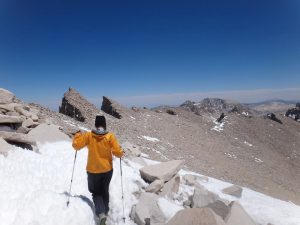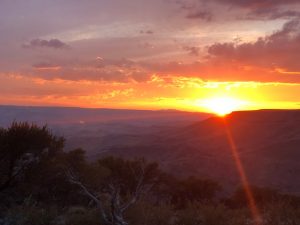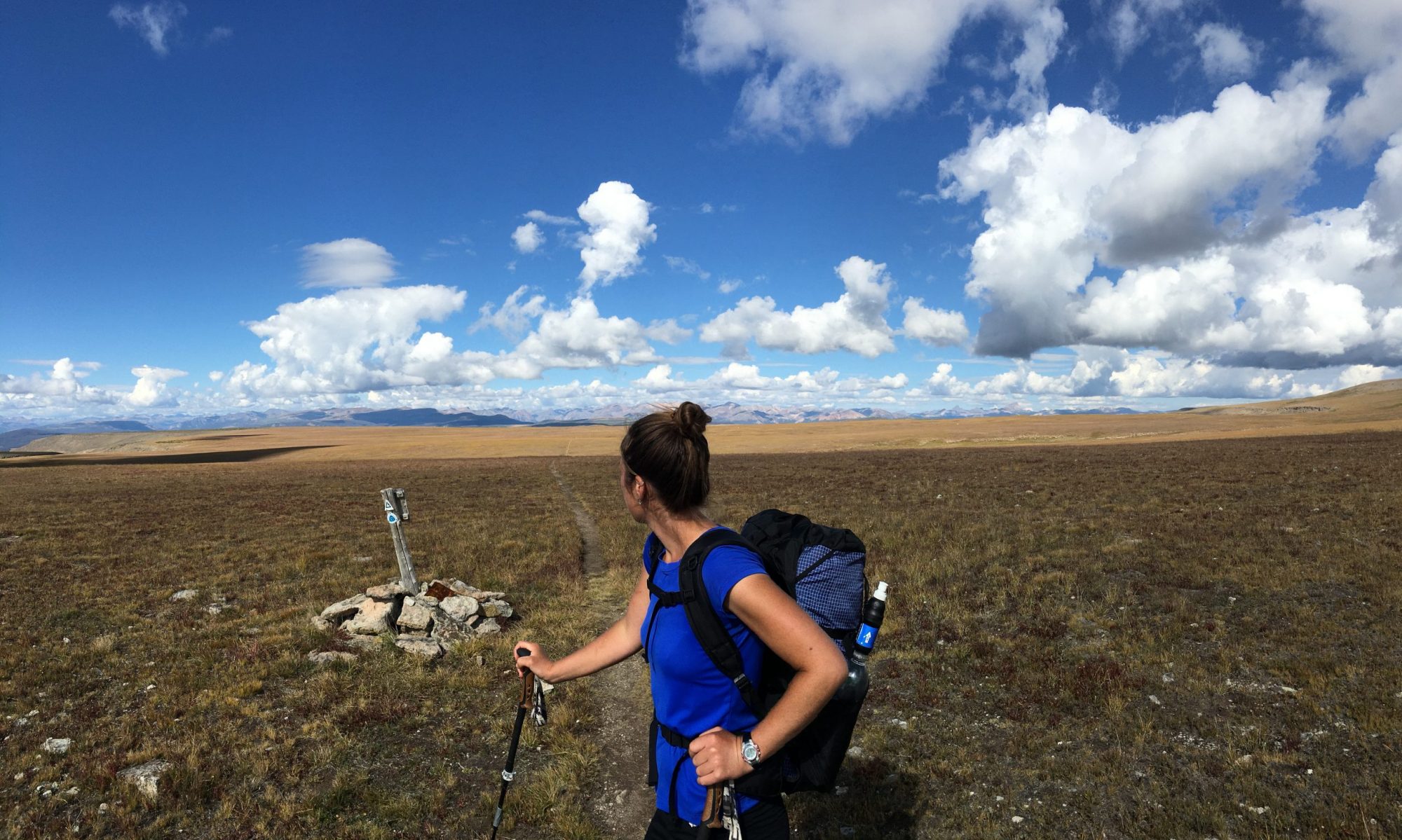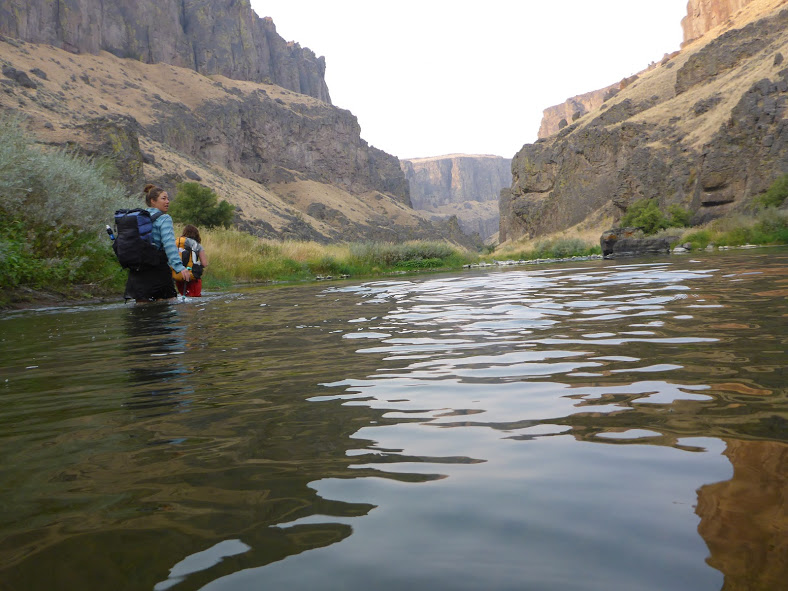What I wish I would’ve done for my health before my first long hike.
Imagine you’ve just hiked 2660 miles and you’re in the best shape of your life. You luck out and are chosen in the lottery for a well known local race you’ve been eyeing for years. It starts in a month. You’ve given yourself a week to recover and you set out on your first ‘training run’.
But something is off. You can’t run more than a couple of miles without extreme deep muscle fatigue. You’ve been exhausted for days and sleep isn’t helping. You’re cold all the time, your hair is falling out, and you’re unmotivated. You have no choice but to pull out of the race.
This was essentially my experience after hiking the PCT. This is somewhat of a cautionary tale, but what I’d really like to share with you is not just how I recovered, but more importantly for anyone considering their own endurance endeavor, how I prepared for my next long distance hike so that I had incredible energy, endurance, and resiliency.

I’ve been a lifelong endurance athlete, competing in swimming and cross country when I was younger, and ultra running in more recent years. I was your typical overly ambitious Type A go-getter, and I still am to some extent, but with more wisdom, earned through my own dark night of the soul.
It wasn’t hiking the PCT per say, that triggered my health issues. Though months of physical stress is a lot for the body and many hikers do end up extremely depleted, gaunt, and with disrupted hormones. I actually felt great on my hike, which I attribute to eating real food.
My health crash upon returning home was the culmination of several factors. This is known as allostatic load, the process of accumulated stress on the body, which often leads to a ‘tipping point’ where the body can no longer cope.
Yes, there was the physical stress of hiking for 4 months, but I also had a lot of emotional stress and likely some degree of intestinal permeability. This is a fairly common condition where tight junctions in the gut lining don’t work properly, allowing toxins, bacteria, and food particles into the bloodstream (where they don’t belong). It’s often caused by chronic stress, poor diet, toxin overload, and bacterial imbalance. It’s been linked to a host of conditions, including inflammation disorders, immune issues, food allergies, and chronic fatigue. I had no clue this was happening because I wasn’t experiencing any digestive issues.

How I Recovered & Prepared for My Next Long Walk
The point is not that long distance hiking is going to cause you to develop adrenal issues, thyroid disease, or any other condition. It’s that despite living an extremely healthy lifestyle, I was not as bullet-proof as I thought. And though reclaiming my health has been quite a journey, I’m grateful for the experience because I can now share information on how to optimize your health BEFORE your hike, so you can thrive, and have a fulfilling, successful journey.
Here are the top 3 practices I did both to recover my health and to prepare for my next long hike. These allowed me to have incredible energy and endurance, day in and day out, and to remain truly healthy, season after season.
Dialed in My Diet for ME
I assumed that because I was vegetarian and I ate healthy, including lots of plants, and because I didn’t have any overt digestive symptoms, that I was healthy. Turns out that’s not always the case, and it’s not until you remove a potentially triggering food, allow the body to reset, and then reintroduce it, that you may find it’s not working for you.
I worked as a baker at the time and even though the bread I was eating daily was made from organic, locally-milled wheat, and baked in a wood-fired oven, and even though I was certain I didn’t have issues with gluten, it turns out it was still doing me harm.
I didn’t realize this until I did an elimination challenge and learned which foods I was not tolerating well. Once I removed those from my diet for a while, things turned around quickly. My inflammation went down, my energy soared, my digestion improved, and my muscles stopped aching.
This is just ONE piece of the puzzle, but it’s a powerful piece. Plus, it’s free.
Focused on Gut Health
Again, I assumed my gut was in good order because I lived a pretty healthy lifestyle and I wasn’t experiencing any noticeable digestive symptoms. I ate probiotics a few times a week, and plenty of fiber.
However, it turns out that 15 years of relying on grains, legumes, wheat, dairy, and other fairly inflammatory foods as a vegetarian had led to a bit of gut dysbiosis. This is where you have inadequate amounts or diversity of the ‘good’ gut bacteria and overgrowth of more pathogenic strains.
Gut health impacts your immune system, nutrient absorption, energy levels, hormone production, weight, and much more.
Led an Anti-Inflammatory Lifestyle
There’s a lot that goes into this one, but when I thought about all my daily actions, I could boil it down to ‘Will this lead to more or less inflammation in my body?’.
Knowing that inflammation is at the root of most chronic conditions, and living in a world where we’re bombarded by stressors from every direction, it makes sense to instill habits that reduce the burden.
This includes making adequate sleep non-negotiable. It also means making sure I actively manage stress levels, whether I feel stressed or not. This means daily mindfulness, like meditation or keeping a gratitude journal.
One of the most important practices I do now is listen to my body. I used to train hard every day, no matter how I felt. I now take time for rest. I slow down. I train in seasons.
Knowing how to eat and train is important, but I’ve also learned how to trust the ebb and flow cycles of the seasons and my body.
I tend to go hard in the summer. And to do that for the long haul, I need a period of repair and rebuilding. With dark days and cold temperatures, winter lends itself well to a season of nourishing the body. I’ve learned to hear my body before I’ve pushed too far.


Great stuff Katie! Your a legend
Thanks, Caleb! Glad you enjoyed it!